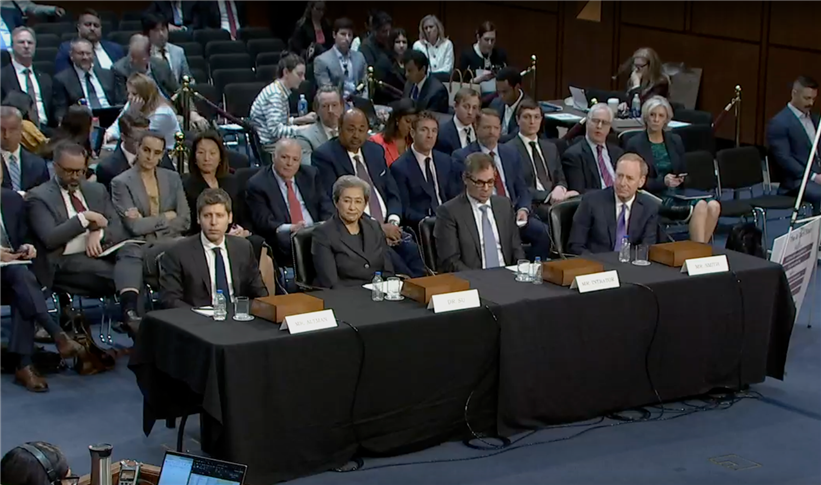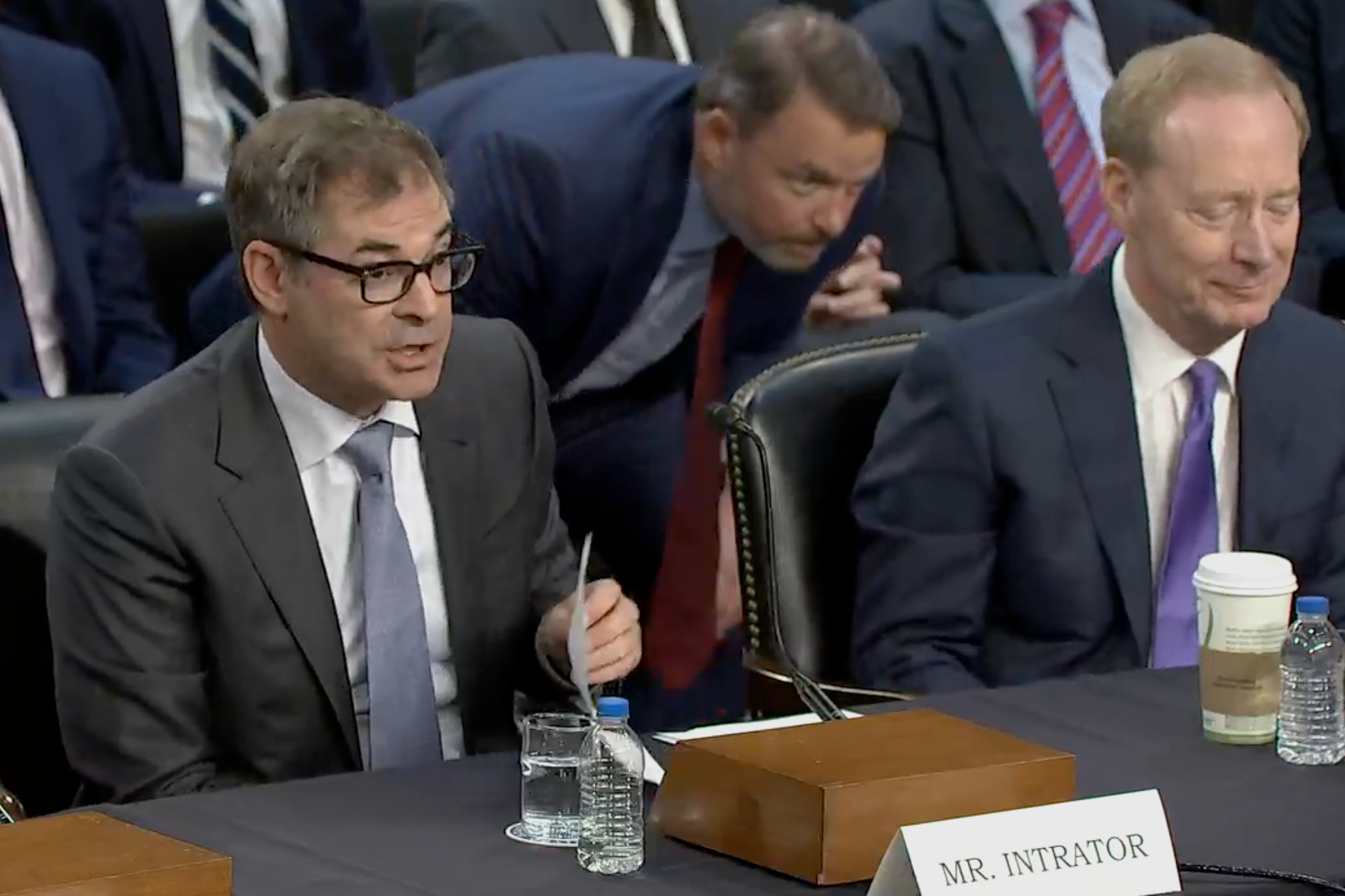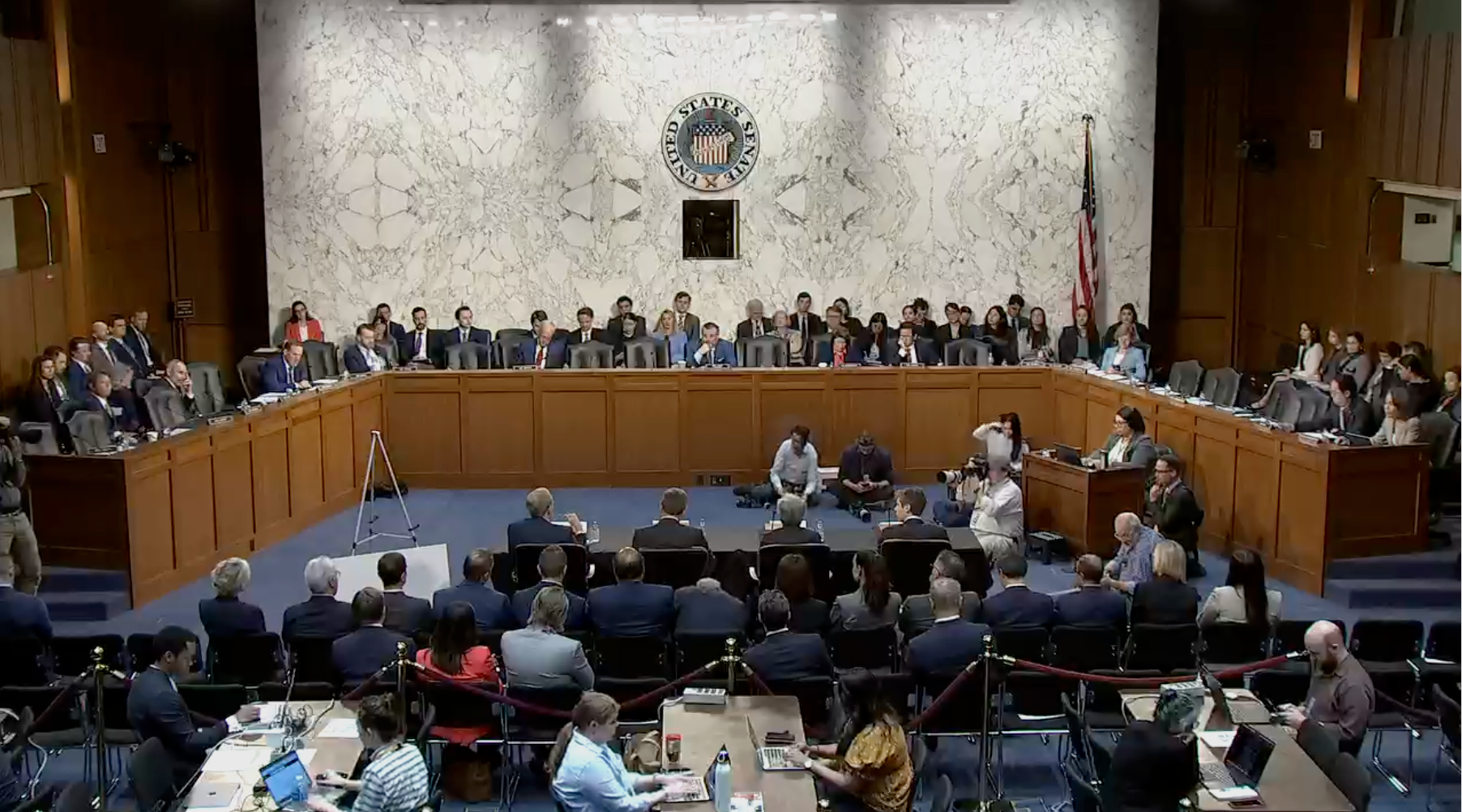Key Takeaways
- Executives from OpenAI, Microsoft, CoreWeave and AMD urged Congress to accelerate investments in AI infrastructure, education and supply chains.
- All four leaders emphasized the urgency of American-led AI standards over authoritarian alternatives.
- The hearing highlighted growing pressure to modernize US power grids and reinforce democratic values in global AI exports.
Leaders from four of America’s top AI companies delivered a clear message to the US Senate on Thursday: the country risks losing the global race for artificial intelligence leadership without urgent and coordinated public-private action.

Appearing before the Senate Commerce Committee in a hearing titled “Winning the AI Race,” executives from Microsoft, OpenAI, CoreWeave and AMD called for sweeping support for infrastructure, workforce development, open ecosystems and international cooperation grounded in democratic values.
Sam Altman: 'This Future Can Be Almost Unimaginably Bright'
OpenAI CEO Sam Altman said the US is closer than ever to reaching artificial general intelligence — and must ensure it aligns with American ideals. “Ultimately, I believe the good will outweigh the bad by orders of magnitude, and that AGI will help bring us into what I call the Intelligence Age — an era when everyone’s lives can be better than anyone’s life today.”
Altman emphasized global stakes: “This future can be almost unimaginably bright, but only if we take concrete steps to ensure that an American-led version of AI, built on democratic values like freedom and transparency, prevails over an authoritarian one.”

He also previewed a fast-moving roadmap for AI development. “In 2025, we will release AI-powered tools that can handle sophisticated software engineering, and AI agents that can handle real-world tasks like making doctor’s appointments and helping to run a business.”
To meet escalating demand, he pointed to the importance of infrastructure, saying, “Infrastructure is destiny, and we need a lot more of it.”
Brad Smith: 'It Is a Race That No Company or Country Can Win by Itself'
Microsoft vice chair and president Brad Smith echoed that urgency, outlining three pillars for US success: innovation, diffusion and export. “The AI race involves both technology and economics. It requires both innovation and diffusion. It is both a sprint and a marathon,” he said.
Smith called for massive investments in data centers and workforce training, and for modernizing the national grid. “Just as you can’t have reliable electricity in your home without a power plant, you can’t have AI without data centers and AI infrastructure.”
He warned, however, of global competition, claiming, “The United States and China are competing not only to innovate but to spread their respective technologies to other countries. This part of the race likely will be won by the fastest first mover.”
He also emphasized international trust. “Perhaps as much as anything, this requires that we collectively sustain international trust in our products, our companies and the country itself.”
Michael Intrator: 'The Limiting Boundary of AI Development Is High-Performance Compute'
CoreWeave CEO Michael Intrator described a dramatic acceleration in compute demand. “In 2018, one of the most popular and advanced generative AI models required a certain amount of compute to train. Just seven years later, in 2025, the amount of compute needed for the latest frontier models grew by about 100,000 times — an extraordinary increase.”

“The limiting boundary of AI development is high-performance compute, delivered at scale and operated at peak efficiency,” he said.
Intrator warned that outdated infrastructure and fragmented permitting are slowing US progress. “Every month of delay represents lost ground in a field where the pace of innovation is measured in weeks, not years.”
He called on policymakers to “create a stable, predictable policy environment that fosters investment, continued growth and innovation.”
Related Article: Inside USPS’s Plan to Reinvent Customer Service With AI
Lisa Su: 'AI Is the Most Transformative Technology of Our Time'
AMD CEO Dr. Lisa Su's testimony focused on the foundational role of chips and hardware. “Underneath every model, every breakthrough and every application is massive amounts of computing power. If we want to lead in AI, we must lead in the infrastructure that powers it.”
Su laid out five national priorities: speed, open ecosystems, supply chain resilience, STEM education and balanced export rules. On US exports, she explained, “If our international partners cannot access US platforms, they will adopt alternatives that may be less advanced today but will mature over time. Threading this needle requires closer collaboration between government and industry to ensure rules are clear, consistent and aligned with both competitiveness and security.”
One Stack, Many Stakeholders
All four leaders emphasized that US success depends on collaboration — across government, private industry, academia and international partners.
As Smith put it, “National AI leadership requires not only success by a few companies, but by many... The AI economy requires a multifaceted and integrated ecosystem.”
Altman added, “America is a nation of innovators, and we want to supercharge people’s ability to use our technology to make their lives better.”
Whether through Microsoft’s global infrastructure buildout, OpenAI’s partnerships with national labs, CoreWeave’s efficiency breakthroughs or AMD’s leadership in semiconductors, the consensus was clear: the US must act fast — and act together — to win the AI race.
